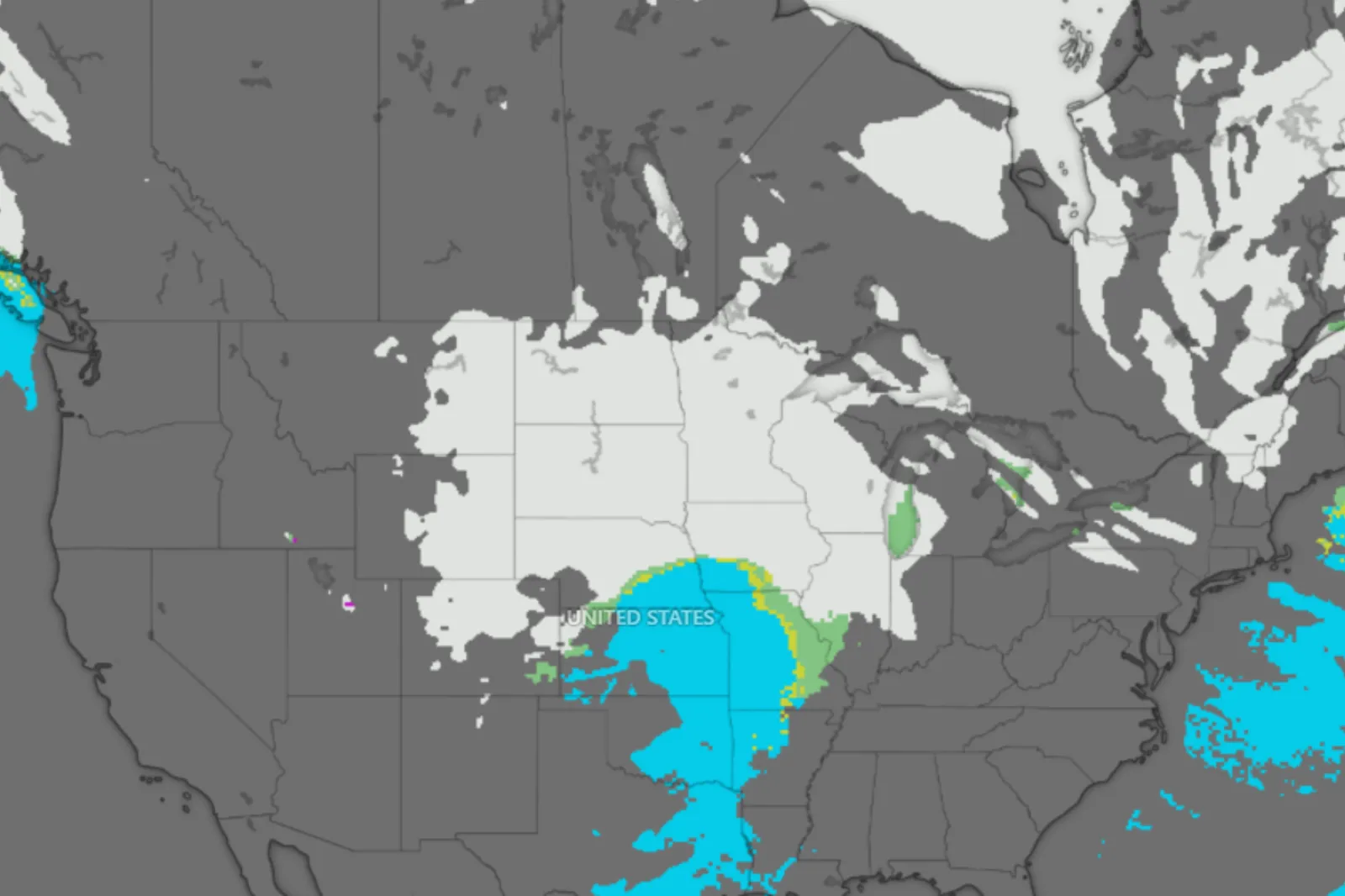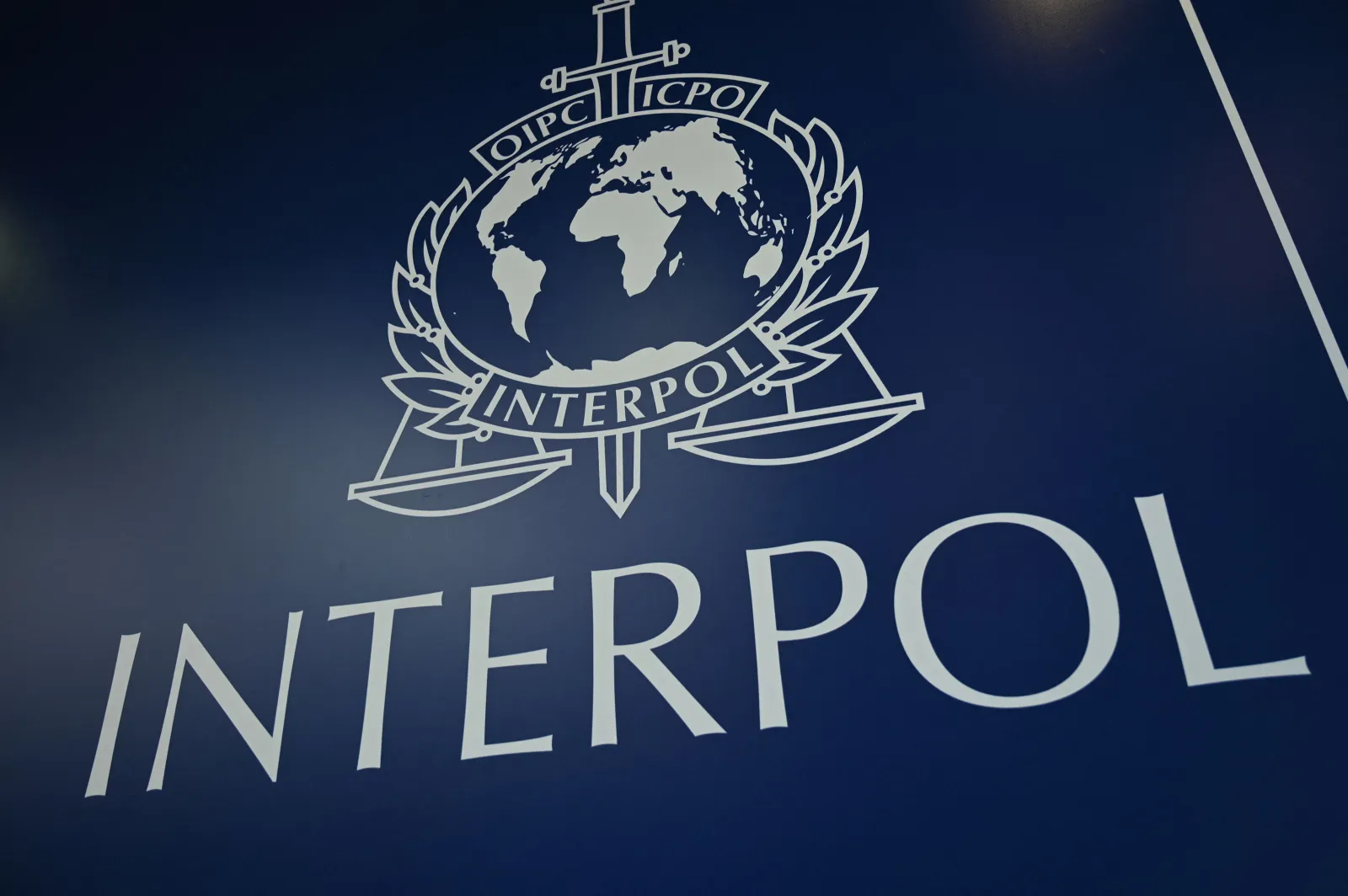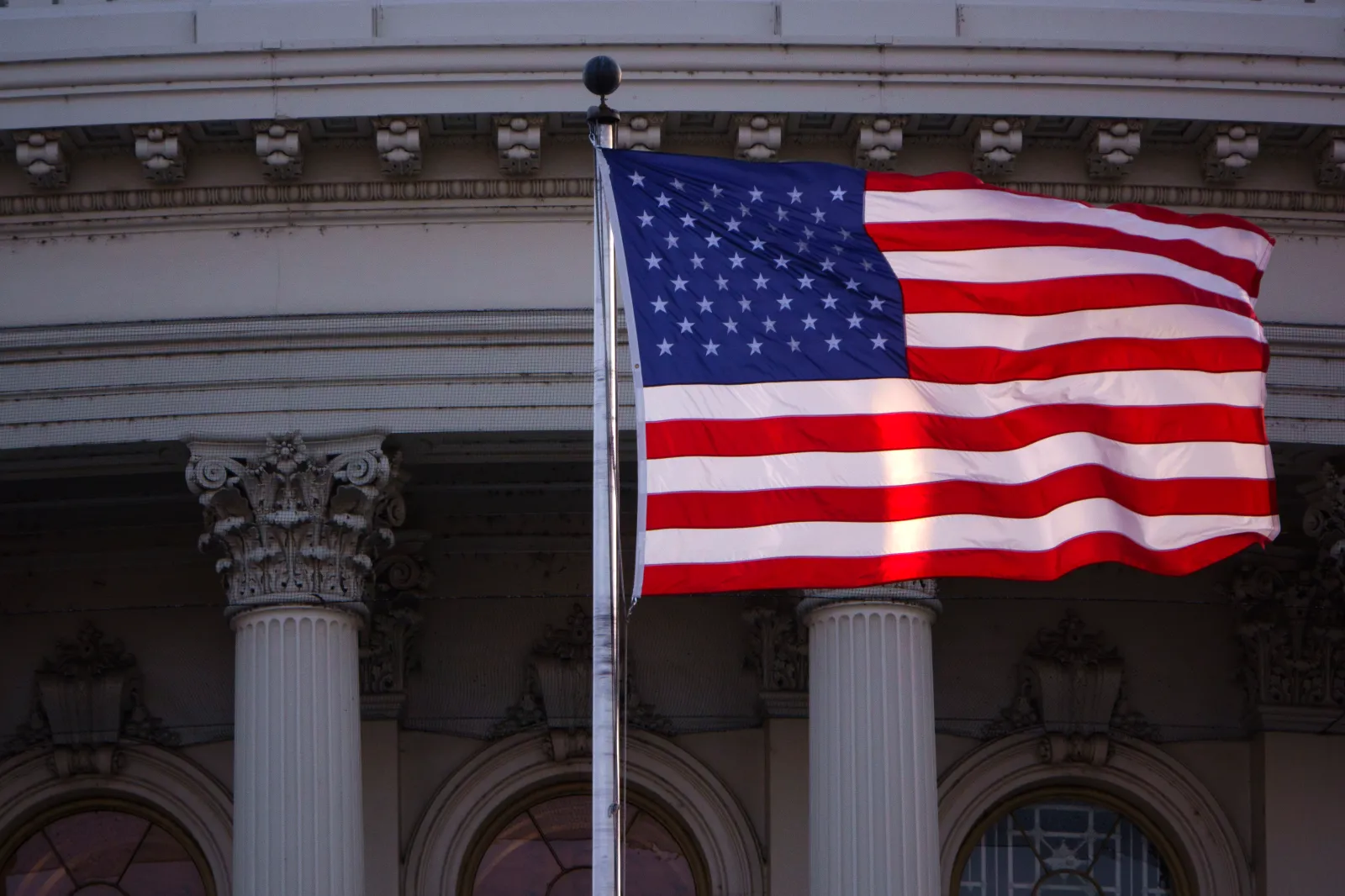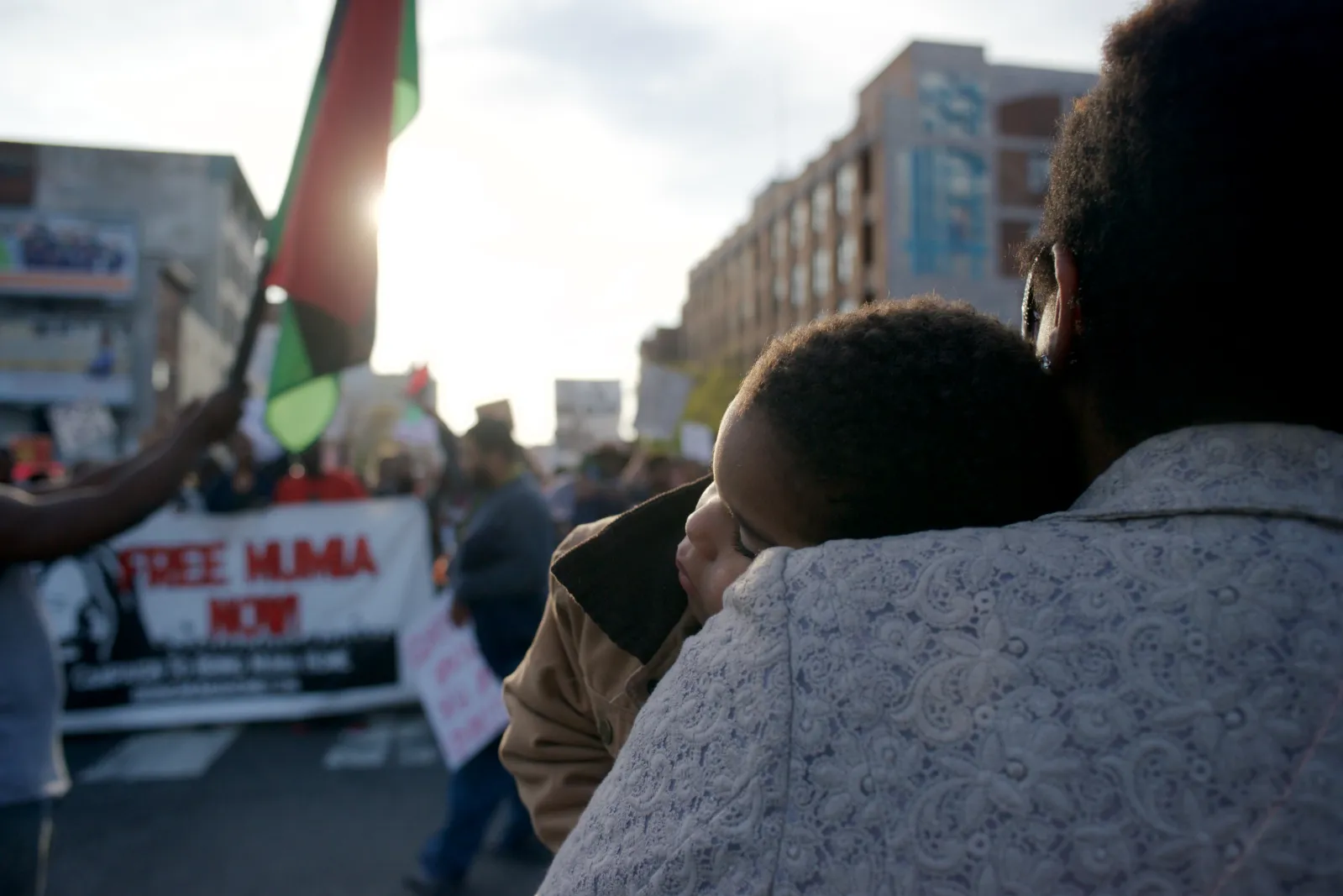 By Tom O'ConnorShareNewsweek is a Trust Project member
By Tom O'ConnorShareNewsweek is a Trust Project memberAs Americans celebrate Thanksgiving this year, Europe's deadliest conflict since World War II rages on despite hints of progress in President Donald Trump's accelerated peace efforts.
Russian advances have come at great cost to Moscow's forces, and their gradual pace shows little sign of imminent victory. But Ukraine's fierce defensive effort has been undermined by a growing crisis within its own ranks that could ultimately pave the way for a more decisive Russian breakthrough on the battlefield, while also further eroding Ukrainian President Volodymyr Zelensky's leverage at the negotiating table.
Already at a major manpower disadvantage at the beginning of the war launched in February 2022 by Russian President Vladimir Putin, Ukraine's shortage of infantry is intensifying as a result of a number of factors that go beyond casualty rates.
"Ukraine is currently suffering from escalating manpower difficulties due to a combination of negative factors including shortfalls in mobilization, rising levels of desertion, and an outflow of military-age men following the partial lifting in August of martial law restrictions on international travel for males aged 18 to 22," Peter Dickinson, editor of the Eurasia Center's UkraineAlert blog and publisher of Business Ukraine and Lviv Today magazines, told Newsweek.
The crisis, he argued, "is adding to what was already an extremely challenging situation as the country attempts to defend a front line over 1000 kilometers in length against a numerically superior enemy with far greater resources," thus "leading to gaps in the front lines that are being exploited in a localized manner by the Russian military."
And while Russia, too, is suffering from manpower challenges, particularly in mobilizing well-trained recruits capable of capitalizing on the defenders' vulnerabilities, Dickinson warned that "Ukraine's shortage of troops is growing more acute and is already leading to breaches."
"If the war continues into 2026 and beyond, Russia's manpower advantage will only increase and could reach a point where it enables decisive breakthroughs," Dickinson said. "This is almost certainly what Putin is counting on and mirrors Russia's historical approach to warfare, with Russia traditionally overwhelming its enemies with superior numbers in long wars of attrition."
 ...
...The Tide Turns Again
When Putin first ordered the so-called "special military operation," few analysts at the time would have predicted that Ukraine would be maintaining its defense two and a half years later against what was widely ranked to be the world's second most powerful army after the United States.
The prelude to the war had actually begun eight years earlier in 2014 when a pro-West uprising that overthrew a government seeking closer Kremlin ties was met with Russia's swift seizure of the Crimean Peninsula and an insurgency led by Moscow-aligned separatists in the eastern Donbas region. In both cases, Ukrainian forces proved unable to reclaim lost territory, providing Russia with additional forward advantages when the full-scale was initiated in 2022.
Yet the success of the Ukrainian military—bolstered by significant U.S. and European military support—in driving back the multipronged Russian invasion that crept within miles of Kyiv inspired new hopes that the underdog force may succeed after all.
The Russian Armed Forces, while superior on paper in every way, was hampered by poor management, maintenance and overall malfunctions is logistics, while the far smaller and less-equipped Ukrainian Armed Forces, proved shockingly adept at mounting a mix of creative tactics and newly acquired NATO weaponry to further compound Russian setbacks.
But as Ukraine continued to excel in key areas, including the use of drone warfare and more advanced U.S. and European platforms, Russia also began to revamp its strategy.
A bloody stalemate that lasted for much of 2023 was finally broken last year after Russian troops successfully resisted a high-stakes Ukrainian counteroffensive, blunted daring Ukrainian incursions on Russian soil—with unprecedented direct help from North Korean forces—and began claiming a list of renewed gains that has continued to grow through to the present.
Among the most notable shifts in recent months has been Russia's near-total taking of the eastern city of Pokrovsk, widely viewed as a key logistics hub to help supply and defend Ukrainian positions in the east, some of which are now at risk of being encircled on this axis.
"The fall of Pokrovsk would appear to lend credence to the Kremlin’s belief that Russia will eventually prevail in a war of attrition," Lucian Kim, senior Ukraine analyst at the International Crisis Group, told Newsweek.
"After such a long bitter fight, Ukrainian morale would be further dented and Kyiv would lose a key city in its defense of the Donetsk region," Kim said. "Vladimir Putin would likely use a Russian takeover of Pokrovsk to demonstrate to Trump that Ukrainian resistance is futile—and that Russia is on a roll to victory."
Newsweek has reached out to the Ukrainian Defense Ministry for comment.
Desperate Measures
Kim pointed out that "the human toll of Russia’s assault on Pokrovsk has been devastating," having both "highlighted Ukraine’s problems with force generation" as well as the fact that "Russia, too, is struggling to come up with the personnel for its creeping, costly advance."
Yet Moscow continues to find enough personnel to outnumber undermanned defensive positions, some of which are held by as few as three soldiers, a reflection of both mobilization woes as well as the potent threat posed by ramped up Russian first-person drone tactics that make easy targets out of large gatherings.
"Manpower has been a problem since late 2023. It is not new," Lawrence Freedman, emeritus professor of War Studies at King's College London, told Newsweek. "It is not a shortage of people in uniform, but specifically in infantry. It creates problems because troops are too thinly stretched, but Ukrainians have developed workarounds. The Russians also have problems, but they start with higher numbers."
Zelensky has placed the overall estimated manpower advantage at three to one in favor of the Russian side, and last month cited an even more daunting figure of eight to one in the battle for Pokrovsk. And while his troops have continued to prevent a total collapse of the front line, the odds may yet worsen as reports indicate an uptick in desertion rates and military-age males fleeing the country.
Citing data provided by the Ukrainian Prosecutor General's Office, the New Voice of Ukraine reported last month that some 311,000 cases had been opened on suspicion of personnel taking absence without leave (AWOL) or deserting since the war began in 2022, with more than half occurring this year alone.
One particularly controversial example emerged in January when reports indicated that at least dozens—and potentially hundreds, according to some reports—of troops attached to the 155th Mechanized Brigade had gone missing, most of them before seeing battle and some while training abroad in France. The brigade, known as "Anne of Kyiv," had been touted as a flagship force intended to repel Russian troops advancing toward Pokrovsk only become the center of investigations opened by the State Bureau of Investigation.
Zelensky's decision in August to lift the wartime ban on Ukrainians aged 18-22 from leaving the country has also proved divisive. The move risks further thinning the nation's shallow reserves yet comes under pressure as scenes proliferate of citizens being dragged off the street and sometimes from their homes to forcibly join the war effort.
The shift has also been met with criticism from partners who have otherwise committed to Ukraine's war effort. Following a phone call earlier this month, German Chancellor Friedrich Merz said he urged Zelensky directly "to ensure that young men from Ukraine in particular do not come to Germany in ever-increasing numbers but rather serve in their own country."
 ...
...The 'Downward Spiral'
The threats posed by a shallow manpower pool are numerous and may have a compounding effect over time. While the brutal advent of drone warfare has inherently necessitated smaller front-line patrols, these units also cycle far out less frequently than traditional land combat would allow
"Insufficient manpower also drives a downward spiral. Because of insufficient manpower, there are no meaningful reserves, which has both tactical impacts (difficult to counter penetrations, counter-attack, otherwise respond to battlefield dynamics) and larger strategic ones," Gil Barndollar, a retired U.S. Marine Corps infantryman who serves as senior research Fellow at Catholic University of America's Center for Strategic Studies, told Newsweek.
"Technology compounds this," Barndollar, also a fellow at the Defense Priorities think tank said. "The danger of getting back and forth to the zero line because of FPVs and other drones means that men stay in front line positions longer and longer, sometimes for durations that are going to be psychologically crippling."
Last month, former Ukrainian Interior Ministry adviser Anton Gerashchenko revealed in a social media post that two soldiers of the 138th Territorial Defense Battalion held their position on the Zaporizhzhia front for 165 days, conducting reconnaissance operations and repelling attempted Russian advances, all while facing "constant" drone and artillery attacks.
On the other hand, Ukrainian Southern Defense Forces spokesperson Vladyslav Voloshin was cited by the state-run Ukrinform broadcaster earlier this month as saying that "the number of Russian troops remains steady, and the enemy on some sections of the frontline is carrying out unit rotations, regrouping, and replenishment of losses."
Little reliable and non-partisan evidence exists to definitively demonstrate the manpower disparity or casualty rates between the warring parties, though a growing chorus of reports from Ukrainian sources indicate that Kyiv's options for cycling out front-line units are far fewer.
"There are not the trained manpower reserves to give men long enough (if not permanent) breaks from frontline combat after they have endured months of it without respite," Barndollar said. "If this goes on long enough, frequently enough, and broadly enough, fears about the UAF's cohesion and endurance may be realized."
Battlefield trends and wartime fatigue may also be sapping morale among Ukrainians. A Gallup poll published in August found that those who would seek a negotiated end to the war as soon as possible had risen from just 22 percent in 2022 to 69 percent this year, while those preferring to fight until victory had plummeted from 74 percent to 24 percent during this same time.
"The issue is fundamentally one of mobilization and will," Barndollar said. "There are millions of men in Ukraine who could serve and are not doing so—including all of the under-25 men who are not eligible for conscription (many young men have volunteered since 2022, of course). If this is truly an existential war, and is perceived as such by most Ukrainians, that manpower pool will eventually be tapped, likely after a serious battlefield reverse.
 ...
...Commanding the Narrative
Since the very outbreak of the war and the tense days and weeks leading up to it, some of the most intensive battles between Russia and Ukraine have been fought not on the ground but over perceptions of which side had the upper hand.
The forced retreat of Russian forces amid severe blunders in the early stages of the conflict have left a lasting impression across the West of Ukraine's capacity to resist total capitulation. But with the toll of the conflict now catching up to Kyiv, the grim reports from the field have a real potential to have the opposite effect abroad, particularly where it may matter most: in the White House.
Dickinson noted that the "issue of perceptions is fascinating, especially in relation to President Trump's stance on the war."
Trump, a frequent critic of former President Joe Biden's policy of ever-expanding aid to Ukraine, came to office a second time in January with a tough line against Zelensky. Their first meeting in February culminated in an outright shouting match in which the U.S. leader famously told his Ukrainian counterpart that he did not "have the cards" to negotiate from a position of strength.
Their relationship has fluctuated since then, with Trump surprising observers in September by announcing that he felt Ukraine could win the war after all, only to more recently signal his initial position that Ukraine would have to offer up substantial concessions to end the fighting.
"In recent days, Trump has again performed a rhetorical U-turn and returned to his early 2025 statements about Ukraine's perceived lack of cards and the inevitability of Russian victory," Dickinson said. "However, this appears to be more in response to signals from Moscow over a readiness to do a deal rather than any new analysis of the battlefield."
This position was reflected in the 28-point peace plan issued by the administration that, among other things, would require Ukraine to cede the entirely Russian-occupied provinces of Crimea, Donetsk and Luhansk and freeze the lines of control in Kherson and Zaporizhzhia, demobilize its military from roughly 800,000-850,000 personnel to 600,000 and relinquish its quest to join NATO.
These points meet some key conditions previously outlined by Putin, who has justified the conflict on the premise of blocking NATO expansion on Russia's borders and whose government already views all five territories as part of Russia following international referendums held without international recognition.
In response to the U.S. peace proposal draft, European powers scrambled to draw up a counterproposal that largely reflected their lasting hopes that a total Russian withdrawal could be enforced. The alternative framework was swiftly rejected by Moscow and met with a muted response from Washington.
Rather, the Trump administration continues to seek a viable path forward in the process by dealing directly with the parties. After reported consultations with the Russian side that helped produce the initial U.S. plan, special envoy Steve Witkoff met earlier this week with Ukrainian representatives for discussions that both sides said produced a tentative greenlight from Kyiv toward an amended plan.
Next, Witkoff will travel to Moscow in a renewed effort to bridge the gap. And while this journey is set to take place amid controversies over the release of audio purporting to show Witkoff coaching Kremlin aide Yuri Ushako on the best way to pitch the deal to Trump, the U.S. leader has brushed off the affair, calling it "standard negotiation."
"I think the perception is that Russia is winning, albeit at tremendous cost," Barndollar said. "I think this is also the reality. That of course impacts negotiations, and clearly impacts the Trump administration's desire to continue supporting Ukraine."
"Absent real evidence of Russian manpower or economic difficulties, this is likely to remain the perception of the war for most external observers," he added. "It makes the U.S., under this administration, more apt to attempt to force a deal mostly on Russia's terms."
Request Reprint & LicensingSubmit CorrectionView Editorial & AI Guidelines Add Newsweek as a preferred source on Google to see more of our trusted coverage when you search.
Add Newsweek as a preferred source on Google to see more of our trusted coverage when you search.Recommended For You
 AnalysisSudan Divided Again Tests Trump’s Peace Plan and Puts Africa on the Brink12 min read
AnalysisSudan Divided Again Tests Trump’s Peace Plan and Puts Africa on the Brink12 min read AnalysisRise of Europe’s Right Is Good News for Jews This Time: Hungary EU Minister10 min read
AnalysisRise of Europe’s Right Is Good News for Jews This Time: Hungary EU Minister10 min read PoliticsDOJ Defends Reassignment of Military Lawyers to Serve as Immigration Judges6 min read
PoliticsDOJ Defends Reassignment of Military Lawyers to Serve as Immigration Judges6 min read AnalysisAdvancing in Ukraine, Russia Troops Are Losing Ground to Al-Qaeda in Africa16 min read
AnalysisAdvancing in Ukraine, Russia Troops Are Losing Ground to Al-Qaeda in Africa16 min read PoliticsInspections of Foreign Food At All-Time Low: Report4 min read
PoliticsInspections of Foreign Food At All-Time Low: Report4 min read NewsAmy Acton Edges Out Vivek Ramaswamy in New Ohio Governor Race Poll5 min read
NewsAmy Acton Edges Out Vivek Ramaswamy in New Ohio Governor Race Poll5 min readRelated Podcasts
Top Stories
 NewsMillions of Migrants Right to Remain in US to Be Reviewed—White House2 min read
NewsMillions of Migrants Right to Remain in US to Be Reviewed—White House2 min read PoliticsRepublicans Fear Doomsday Scenario in Tennessee Special Election5 min read
PoliticsRepublicans Fear Doomsday Scenario in Tennessee Special Election5 min read NewsWinter Storm Map Shows Areas Possibly Getting Hit for Thanksgiving3 min read
NewsWinter Storm Map Shows Areas Possibly Getting Hit for Thanksgiving3 min read NewsNational Guard Shooting Suspect Worked With CIA, Director Says3 min read
NewsNational Guard Shooting Suspect Worked With CIA, Director Says3 min read WorldUkraine War Live Updates—Russia Praises Trump ‘Realism’, Putin Promises Allies New Weapons3 min read
WorldUkraine War Live Updates—Russia Praises Trump ‘Realism’, Putin Promises Allies New Weapons3 min read NewsAmerica Is Finally Falling in Love With Amtrak. The Tracks Can’t Keep Up8 min read
NewsAmerica Is Finally Falling in Love With Amtrak. The Tracks Can’t Keep Up8 min readTrending
 WeatherWinter Storm Warning As 20 Inches of Snow To Hit: ‘Life-Threatening’4 min read
WeatherWinter Storm Warning As 20 Inches of Snow To Hit: ‘Life-Threatening’4 min read New York8 Million Inflation Refund Checks Sent Out Ahead of Thanksgiving3 min read
New York8 Million Inflation Refund Checks Sent Out Ahead of Thanksgiving3 min read Live BlogThanksgiving Winter Storm Live Tracker, 2,000 Flights Delayed, Up To 3 ft Of Snow Expected1 min read
Live BlogThanksgiving Winter Storm Live Tracker, 2,000 Flights Delayed, Up To 3 ft Of Snow Expected1 min read MoneyNew ‘Cash Law’ Could Change Grocery Store Rules3 min read
MoneyNew ‘Cash Law’ Could Change Grocery Store Rules3 min read U.S. Economy‘Mass Blackout’ Starts Today: What to Know3 min read
U.S. Economy‘Mass Blackout’ Starts Today: What to Know3 min readOpinion
 OpinionThis Thanksgiving, Affordability Isn’t Just About the Turkey. It’s Everyday, Every Bill, Every Choice | Opinion4 min read
OpinionThis Thanksgiving, Affordability Isn’t Just About the Turkey. It’s Everyday, Every Bill, Every Choice | Opinion4 min read OpinionINTERPOL Must Not Elect One of Its Chief Abusers As Its Next President | Opinion4 min read
OpinionINTERPOL Must Not Elect One of Its Chief Abusers As Its Next President | Opinion4 min read OpinionWhy We Care About Turkey Costs | Opinion5 min read
OpinionWhy We Care About Turkey Costs | Opinion5 min read OpinionThanksgiving in America | Opinion5 min read
OpinionThanksgiving in America | Opinion5 min read OpinionWhen Strength Becomes a Burden—Reimagining the Strong Black Woman | Opinion4 min read
OpinionWhen Strength Becomes a Burden—Reimagining the Strong Black Woman | Opinion4 min read